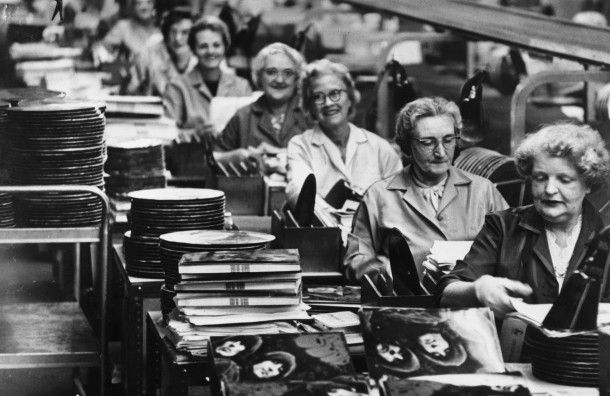A fascinating article on the economics of pop music.
There’s inequality of opportunity.
In the pop version of income inequality, perpetuating the gulf between haves and have-nots, the most successful performers get first dibs on the hottest producers and songwriters of the moment. Yet while singers come and go, an oligarchy of producers endures.
And pin-factory-like specialization and division of labor:
…Potential hits may also be assembled in high-pressure pop think tanks called “writer camps,” where a deep-pocketed star—Beyoncé, perhaps—convenes dozens of producers, composers, and lyricists in hotels and studios, where they run through every permutation of producers and topliners. The campers are often a mix of longtime pros and newcomers from the hipper fringes, sharing their innovations or eccentricities for the chance at a pop payoff. “Camp counselors” schedule teams to come up with a song before lunch, then reshuffle the teams to come up with another afterward, with daily playbacks to keep everyone competitive. “If the artist happens to be present,” Seabrook writes, “the artist circulates among the different sessions, throwing out concepts, checking on the works in progress, picking up musical pollen in one session and shedding it on others.”
In a different, less physically proximate kind of songwriting contest, one very simple track—a single beat or a chord progression—gets sent simultaneously to dozens of potential collaborators. Then the producer and singer might choose a verse from one response, a chorus from another, an instrumental hook from yet another: digital brainstorming. Many of the songwriter-producers in the book are blunt about describing their work more as a business than a form of self-expression—though that may be more a matter of our era’s MBA mentality, combined with a hip-hop culture of competitive striving gone mainstream. The Beatles wanted hits, too.


4 Responses
The proletariatarian production of pop: A fascinating article on the economics of pop music. There’s inequalit… https://t.co/a7sQ4fb0kY
“The proletariatarian production of pop” https://t.co/ZJFpyTF4TB
while singers come and go, an oligarchy of producers endures https://t.co/IY9VS6n6uf
Both the review and book look fascinating. But I was particularly intrigued by Chris’ claim that they discuss the “economics” of pop – based on my reading, they seem to discuss the sociology, perhaps the management, of it.
The sentence that precedes each excerpt highlight the point: inequality is a core sociological concern, and the pin factory example comes from Weber.
What makes something “economic”? How are these criteria defined? And, from a contrarian view, where does the broad claiming illustrated by this post comes from (what force propels it)? And what function does it serve in the sociology (or economics?) of knowledge & the system of disciplines?
At first glance, calling something “the economics of” seems innocuous enough, but the repercussions might be deep & wide.